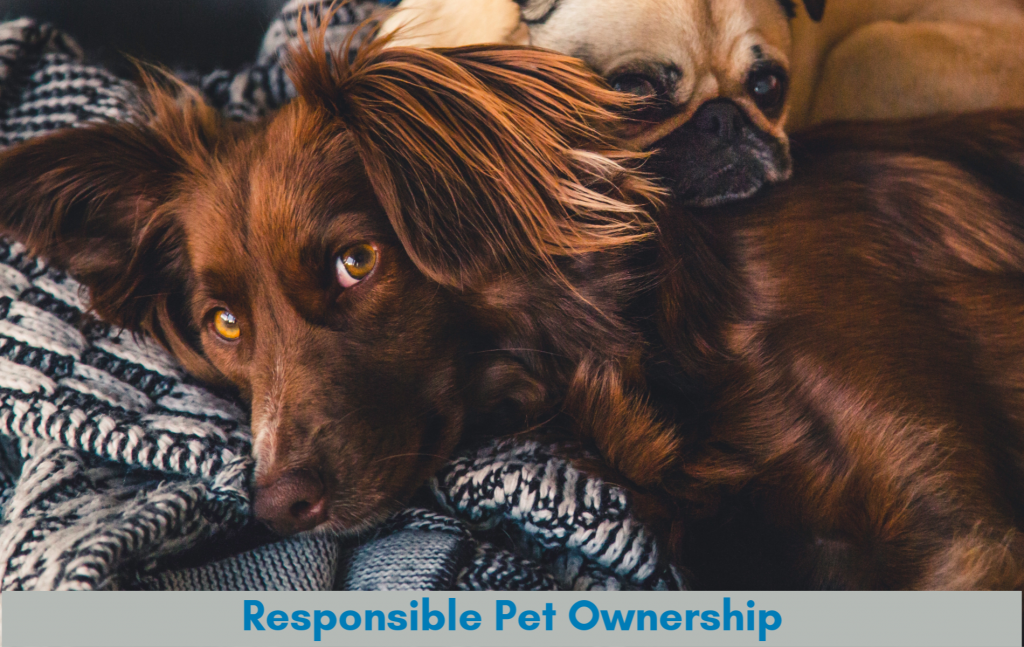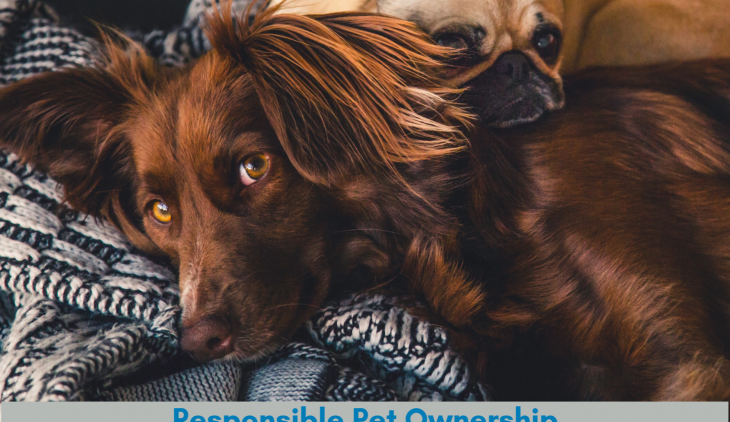A bit of truth: how to be a responsible pet owner
Puppies and kittens, dogs and cats, they are cute and sweet and funny and so cuddly! They are definitely worth all of the work and costs. Plus research shows that pets are good for your health and benefit kids and seniors. With responsible pet ownership, it’s important to be prepared to invest both time and money in a pet before you add one to your family and prepare to continue to invest in your pet as his needs change throughout life.
This article isn’t sugar-coated.
You may not like what this article has to say. But hopefully, you can pat yourself on the back knowing you are giving your pet everything she needs. Or, maybe you learn ways you can do even better for your pet. Responsible pet ownership isn’t about buying the most expensive fad dog food or building the biggest indoor obstacle course for your cat. It is about covering the basics and preparing for everything else.

Picking the Right Pet For Your Family Is the First Step In Responsible Pet Ownership.
Shelter pets have to come from somewhere. Some of them have rough starts to life but many others started their lives with well-meaning families who realized that they got in over their heads. The first step of being a responsible pet owner is doing your research to select the right pet, breed, age, and combination of animals.
Age Matters
Puppies and kittens are a lot of work. Prepare to have damaged furniture, stained rugs, and sleepless nights. Adult dogs and cats may already be trained, and you can skip the sometimes expensive vaccine booster series and spay or neuter surgery.
Breed
Once you decide on age, the next consideration is breed. If you are a couch potato, don’t get a herding breed that needs hours of exercise daily. On the other hand, if you have a big busy family, pick a breed that can handle all that commotion like a retriever. Mixed breed dogs can be excellent family pets but if you need something specific out of your dog, a purebred dog might be a better fit. The AKC has information about the traits and medical needs of many breeds on their website as well as a breed selector to help you with your choice.
Still Unsure?
If you need extra help selecting the right pet, talk to a local veterinarian (even if you don’t have any pets yet) or ask shelter staff. Responsible breeders will also make sure your household is a good fit for their puppy.
Time Commitment
Responsible Cat Owners Know Their Cat’s Require Attention
Cats are a time commitment, though many people bring a cat into their family thinking cats don’t require much work. Litter boxes need to be cleaned frequently, cats need fresh food and water daily, and they need interactive play-time with the family.
Dog’s Are Hands-On For the Entire Family
Dogs require a bigger time commitment. They need daily walks, potty breaks, and exercise. Dogs also need training. Whether that’s formal training in a class or learning the basics at home depends on the dog and your lifestyle. Every dog needs to know how to behave around both family and new people, and most dogs need to know how to walk on a leash.
Budgeting Your Way To Responsible Pet Ownership
Pets cost money. From food to toys, there are plenty of things you need to buy for your pet continually. Cats need litter boxes (and clean litter) and scratching posts. Dogs need leashes (and poo bags) and many require grooming.
The Initial Basics
Responsible pet owners get their dogs and cats microchipped and spayed or neutered. A benefit of adopting instead of buying a pet is that many shelters and rescues provide these services before your adoption. These are one-time expenses and are very important for your dog’s health and safety.
Monthly Basics
Dogs need heartworm prevention 12 months a year and intestinal parasite prevention as well as flea and tick prevention (*some cats need these things too, **dosing schedule may vary). These are important monthly treatments that keep your cat and dog healthy and prevent your human family from catching transmissible diseases.
Vaccinations
All pets, even those that live only indoors, are legally required to be vaccinated against Rabies every 1-3 years (dependent on your state and type of vaccine). Dogs should also be vaccinated against Parvovirus, Distemper, and several other easily spread (Bordetella) and/or deadly diseases. At minimum kittens, cats who spend time outdoors, and before adding more cats to your household should be vaccinated against Calicivirus, Panleukopenia, and Rhinotracheitis as well as receive the Feline Leukemia virus vaccine.
Pet Savings Account and Responsible Pet Ownership
Pets also need a savings account. Pets get sick and injured and need to see a veterinarian. Be realistic about how much you are willing to spend to save your pet’s life. Make it easy on yourself and set up auto-deposit from your main account to a savings account for your pet.
Why Set Up a Pet Savings Account
Problems left untreated often require more expensive treatment to fix so it is worth visiting your veterinarian quickly to resolve health issues. As pets age, they often develop health issues that require daily medications, regular trips to the vet, and other testing and treatments. Having a pet savings account in place will be a weight off your shoulders when your pet needs medication, blood work, or diagnostic testing.
A Responsible Pet Owner Plans For the Future
Expect that a cat can live for 20 years and dogs live between 10 and 18 years depending on breed and size. If you know up front that you can’t keep your pet for life, then you shouldn’t have a pet. If you move often or expect that you might move in the future, be aware that it will take extra searching to find pet-friendly housing and many of those options have limits on number and size of animals.
Sometimes Life Happens
Life happens and sometimes it changes so much that you cannot keep a pet you previously committed to. Ask friends and family if they are willing to adopt your pet. Ask your veterinarian for help. As a last resort call your local shelter, but never just let an animal run off or become neglected.
Arming Yourself With Information Is the First Step
All of that might feel a bit overwhelming, and that is okay. Knowing what you are getting yourself into is an important first step for doing it responsibly. Pets are totally worth it, and they will love you even when you make mistakes. But, in return for that unconditional love let’s try to be the people our pets think we are.

